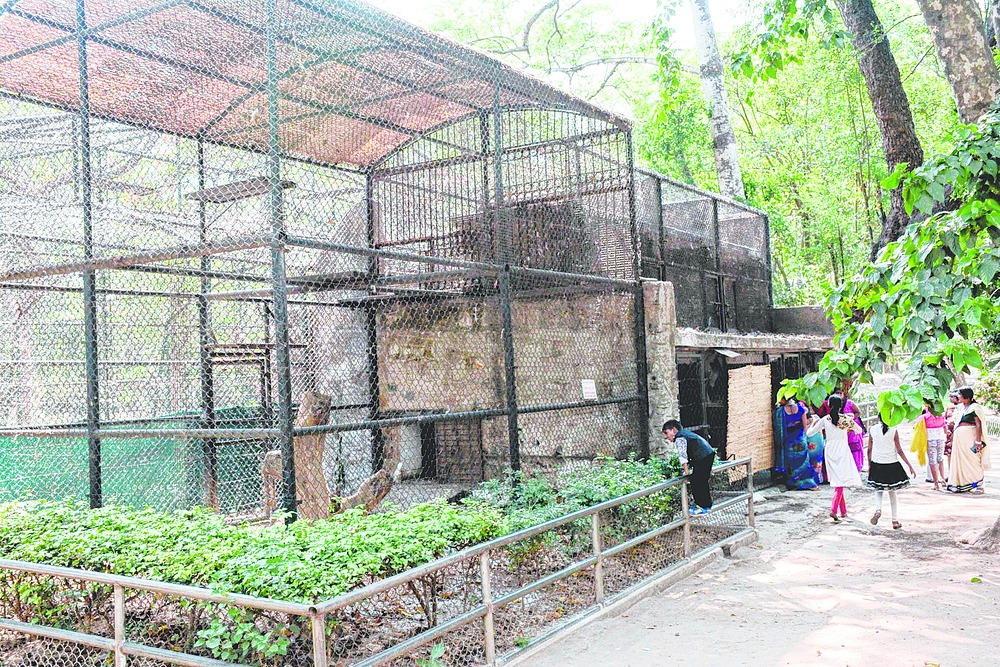Spotted beauty Sheeba, the 15-year-old female leopard of Tata Steel Zoological Park, Jamshedpur, has left for the great blue yonder.
Bronchitis claimed the life of the leopardess on Monday morning, leaving her partner Ved distraught.
Ill for a while, Sheeba was under treatment at the Tata zoo clinic, but her condition started deteriorating in the last few days. Eventually, she breathed her last on Monday morning.
Tata zoo has formally informed the Central Zoo Authority (CZA) and the state forest department.

The post-mortem of the carcass was jointly conducted by government vet D.K. Chaurasia and his Tata zoo counterpart Manik Palit. Then, the carcass was burnt in an incinerator on zoo premises in the presence of divisional forest officer (Jamshedpur) Saba Alam and zoo director Bipul Chakravarty.
"The autopsy report of the leopardess confirmed she died of bronchitis. Sheeba had become old. She had lived a full life," Chakravarty told The Telegraph on Tuesday. "Leopards have a life span of 15-16 years," he added.
Asked if this summer heat could have been an added reason behind the casualty, the zoo director replied in the negative. "No, heat is absolutely ruled out (as a cause of the death)," he said. "The post-mortem confirms Sheeba died of bronchitis. An excessive amount of cough had accumulated in her lungs," Chakravarty added.
The regal Sheeba and her partner Ved - who used to be a guy with a glad eye in his heydays - had hit the headlines in 2013 when their bundle of joy Bobby was born in 2013.
Next year, however, grief struck the couple as 13-month-old Bobby died of asphyxiation, choking on a big chunk of beef in the afternoon of May 24, 2014. Sheeba had been eating in the same cell when the tragedy occurred.
Now, with Sheeba's death, Ved, Mithun and Basanti are the only leopards left at the Tata zoo.
Ved, a source inside the zoo revealed, was so devastated over Sheeba's absence that he had stopped eating on Monday. "He looked shocked. He'd become very quiet. On Tuesday, he nibbled a little beef and is regaining his composure slowly," a caretaker said.
On the Tata zoo's summer safety regimen this year, director Chakraborty said they had made elaborate summer management plans to protect the animals from the blistering Jamshedpur heat. "We have installed desert coolers inside the enclosures of leopards, tigers, lions, mandrills, zebras and bears. Drinking water is replenished twice a day," Chakravarty said.











